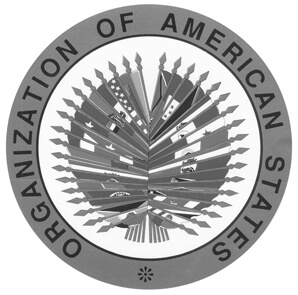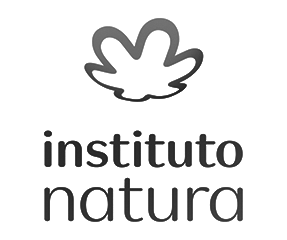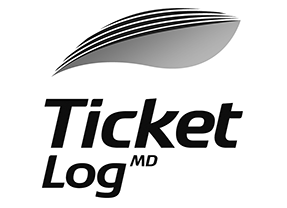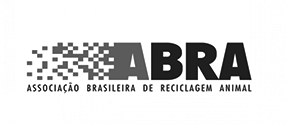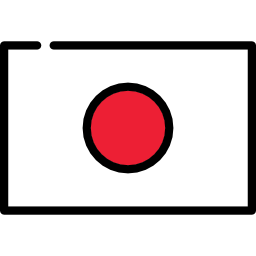Japanese Document Translation Services at TripleTrad NZ
Our Japanese document translation services provide the consistency and precision needed for your NZ-Japan business relations to thrive.
Japanese isn’t officially spoken outside of Japan, but the economic power of the country, which is the third largest economy in the world (2017), makes Japanese translations paramount to international business.
Precision in document translation is crucial to assure your success in business and contract negotiations, as well as other aspects of the Japanese and NZ commerce.
When these translations involve languages as different in concept and grammatical structure as Japanese and English, business executives and lawyers rely on professional translation agencies to guarantee that their projects are properly executed by qualified, native translations who specialise in their specific field.
Group Unity is of Prime Importance
Japan is well-known for its group-oriented work culture. Japanese give more value to group unity than individualism. This can be related to one of the most famous Japanese quotes: “You can easily break a single arrow, but not a bundle”.
This mindset in business culture decides certain behaviours, such as the way praise is received. While Kiwis may give more importance to individual contributions and may strongly believe in individual praise, it’s the exact opposite in the Japanese business environment.
Picking an individual from the group to reward them with special recognition may reduce the morale of the other group members. To some extent, it may even embarrass the individual who got picked. At least, that’s what the Japanese believe.
When establishing business relationships with Japan, it’s crucial to adopt the team concept and give public credit to the group, not the individual (Japanese document translation services).
Japanese Business Etiquette
It’s something new to know that the Japanese follow a ritualised and unique business culture. This has become a big concern for NZ companies and governments that seek to develop their foundation and relationship with the Japanese industry.
That’s because the Japanese immensely value business etiquette during any type of meeting.
However, there’s nothing to worry about as Kiwis can always establish strong bonds with the Japanese as they’re of forgiving nature.
Having good communication with the best Japanese translator, showing respect, and exhibiting interest to understand their etiquettes can resolve the issue.
Japanese Business Meeting Protocols
Whether it’s the NZ government or NZ companies, having a proper understanding of the Japanese business protocol is crucial.
This observance will stand out as the foundation pillar of a strongly built network of Japanese colleagues. With one prominent blunder, the prospective Japanese business partners could get offended and withdraw their interest to establish any profitable business opportunity.
At times, failure to understand these protocols happens due to improper translation services. This is why a professional Japanese translator has become crucial for establishing an NZ-Japanese business network.
Although the Japanese business protocol has a domineering reputation, it’s quite similar to what Kiwis follow: good manners, sensitivity, and politeness.
The primary difference is that Japanese business meetings in their country are more formal than any other place, especially if it’s the first meeting.
You’ll have to properly give and receive business cards, which is of paramount importance for Japanese executives. The best part is that the Japanese won’t expect you to have an overall idea of their etiquette.
History of Japanese Language
Professional service from a Japanese translator has emerged to be of paramount importance in today’s world, where countries are looking for every single opportunity to establish business relationships with Japan (Japanese document translation services).
As the third-largest economy globally and the most crucial Asian economy, Japan has become the centre of attraction for doing business.
With increased business growth and development by working alongside Japanese companies, there has been a simultaneous demand for the Japanese language.
With a long history, the Japanese language has become a dialect spoken everywhere in the world. The Japanese language was first discovered in the eighth century, and it’s known as “Old Japanese.”
However, with the arrival of the seventeenth century, the world got introduced to what we know today as “Modern Japanese”. Today’s Japanese language developed during the Edo Period.
All About the Japanese Language
The Japanese language is well-developed with a series of characters. When it comes to main alphabets, the Japanese language has three of them – Kanji, Katakana, and Hiragana.
Kanji, the oldest Japanese alphabet, comprises a group of Chinese characters. When Kiwis start studying the Japanese language, the first alphabet they learn is Hiragana.
Written Japanese will always consist of these three of the different alphabets in everyday business activities. There’s a specific order for Japanese words when it comes to grammar.
For instance, the back of a sentence typically consists of a verb. The verbs in Japanese won’t create any difference between numbers or genders, and the same verb can be utilised in both plural and singular forms.
These unique aspects make Japanese translation a complex process (Japanese document translation services).
Almost 120 million people speak the Japanese language in Japan. However, there’s a large number of people who speak Japanese in New Zealand and other countries such as the U.S., Brazil, and Australia.
Moreover, the Japanese language has earned the status of an official language at the IMF or International Monetary Fund. Although the IMF has English as its main language, any conference meeting needs to be translated simultaneously into six different languages, including Japanese.
It’s nothing to be surprised that the IMF, with its prime concern of economic matters, is one of the definite international organisations to add Japanese as one of its official languages. After all, Japan is the third-largest economy in the world.
The Emergence of Japanese Translators
After the economic size of the U.S. and China, the Japanese economy stands in the third position with a GDP of over $5 trillion.
Japanese companies have dominated the business world with their technological innovations for a long time. Moreover, the Fortune 500 stock market index in 2011 comprised 68 Japan-based corporations.
The largest corporation in terms of revenue in Japan is Toyota, which is also one of the largest corporations in the world. Other prominent Japanese corporations include top car manufacturers such as Mitsubishi, Honda, and Nissan.
Also, Canon, Sony, and Hitachi are some of the electronic giants that feature exceptionally in the world. NZ companies and the NZ government need reliable and professional Japanese translation services to establish strong business relationships with these economic powerhouses.
With the significant importance and economic power of the Japanese corporations, there has been a rapid increase in demand by different countries to conduct business with Japan.
In order to communicate, do paperwork, and conduct business with Japanese corporations, the NZ government and companies will need a professional Japanese translator.
Moreover, the complexities involved with the Japanese business etiquette, protocols and language have led to the significant emergence of professional Japanese translation services.
How Can Professional Japanese Translation Services Help
There’s no other language that is even remotely close or somewhat related to Japanese. Moreover, the Japanese language consists of a significant number of regional dialects with a prominent degree of variation.
Concerning business etiquette, Japanese corporations follow a certain way to do business, especially at meetings.
For instance, it’s essential to present and receive business cards at meetings with both hands. When receiving a business card from some Japanese entrepreneur, it’s crucial to leave it on view for the rest of the meeting.
Lastly, it’s vital to avoid handshakes in between or after a Japanese meeting as they consider it a degree of humiliation. Here, having a professional Japanese translation service could help you familiarise yourself with their work culture and environment.
We know how hard it can be to find an exceptional Japanese translator when you need one. That’s where we come in: we give your international business endeavours direction and power, enabling you to be just as effectively overseas as you are locally.
We work as if we were a translation department within your own company, except you don’t need to worry about the hassles of contracting workers or finding professional translators for your business documents.
We strive to be the best Japanese-English translation service for both, whether it’s in New Zealand or Japan. Our communication services have proved to be of immense benefit to the companies based on both countries.
We aim to deliver a supreme quality service to support the success of our global clients in the Japanese market.
Whether it’s the need for the Japanese translation of business cards or face-to-face communication solutions, we take care of all Japanese-NZ translation services.
You only pay per project, with no recurring or monthly fees.
At TripleTrad NZ, we are passionate about helping your business and projects gain publicity and new audiences both locally and internationally.
If you have any questions about our Japanese translation services, get hold of us at +64 9 889 1265. You can also contact us on Whatsapp (click here). 🙂

Certified Translation Services

Accurate Translation Services in NZ

Fast Response Time: We Live in the Future
Projects in 2022
620
Language combinations
215
Team members across the planet
600
Happy clients worldwide
1500
WHO WE SERVE
TripleTrad is a thriving business with over 10 years of delivering comprehensive translation services across 300 languages to both fledgling and long-established organizations. Our services have assisted companies in fields such as:
- Advertising, Architecture
- Design, Education, Engineering
- Financial, Legal
- Manufacturing, Medical
- Multimedia, Technology
WHAT CLIENTS SAY ABOUT US
"Reliable service"
96%
"Amazing turnaround time"
93%
"Accurate"
94%

Professional translation services

Reliable support

Solid contract
TAKE YOUR PROJECT TO THE NEXT LEVEL.
AMAZINGLY DESIGNED TRANSLATION SERVICES



